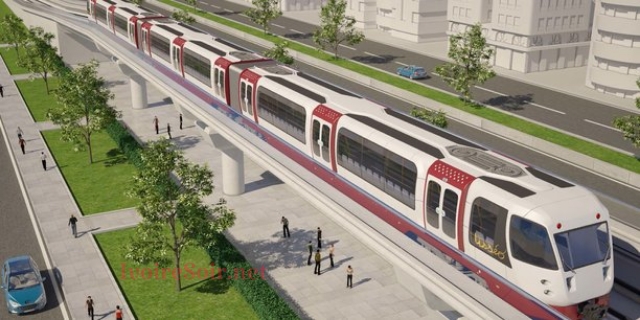Main urban center of Côte d’Ivoire, Abidjan, the country’s economic capital, is one of the most dynamic cities in Africa, with more than 6 million inhabitants, and concentrating most of the country’s economic activities.
The considerable increase in cars and means of transport such as SOTRA buses (Société de Transport Routier Abidjan), minicars commonly called “Gbaka” and collective taxis (wôrô-wôrô) no longer manage to meet the needs of city populations.
Thus, the Abidjan metro, an urban transport project, was designed and launched in 2017, before the Heads of State of Côte d’Ivoire and France, with the aim of decongesting the agglomeration and making the movement of populations more fluid. , with its length of 37 km.
[…] I am delighted with the launch of construction work on the Abidjan Metro. This project, which I hope will be completed quickly, is a source of great pride. It will revolutionize and streamline urban transport in Abidjan, positively impact the national economy and the quality of life of many households, thanks in particular to the 2,000 jobs it will generate and the time savings it will bring to the 530,000 Abidjan residents. , I mean 530,000 Abidjan residents who will use it daily and the 180,000,000 passengers it will transport per year. It was unthinkable that Abidjan, an African city of more than 5,000,000 inhabitants, did not have its Metro to assert its modernity and dynamism,” declared President Alassane Ouattara.
With some delays recorded, the works really started a few years later, and gave rise to actions of destruction of the habitats which were on the section which must shelter this important infrastructure project.
The Implementation Unit of the Action and Resettlement Plan, in its words, “therefore calls on the people affected by the project to calm down, because as planned by the government of Côte d’Ivoire, all the people who have lost their property in the context of the construction of the metro will be fully compensated”.
If some have been rewarded, other people who have not received compensation categorically refuse to leave their home, because they are financially unable to find another roof. This worrying situation, which lasted for months, gradually eased following negotiations with the populations concerned.
This project is supposed to connect the north and the south of the capital, from Anyama to the Félix Houphouët-Boigny airport located in Port-Bouët, passing through the municipalities of Abobo, Adjamé, Plateau, Treichville and Marcory, with a capacity of 500,000 daily passengers.
Initially planned to be operational in 2021, the 2026 deadline is the most talked about at the moment. The Abidjan metro will thus be the 4th to see the light of day in Africa.





